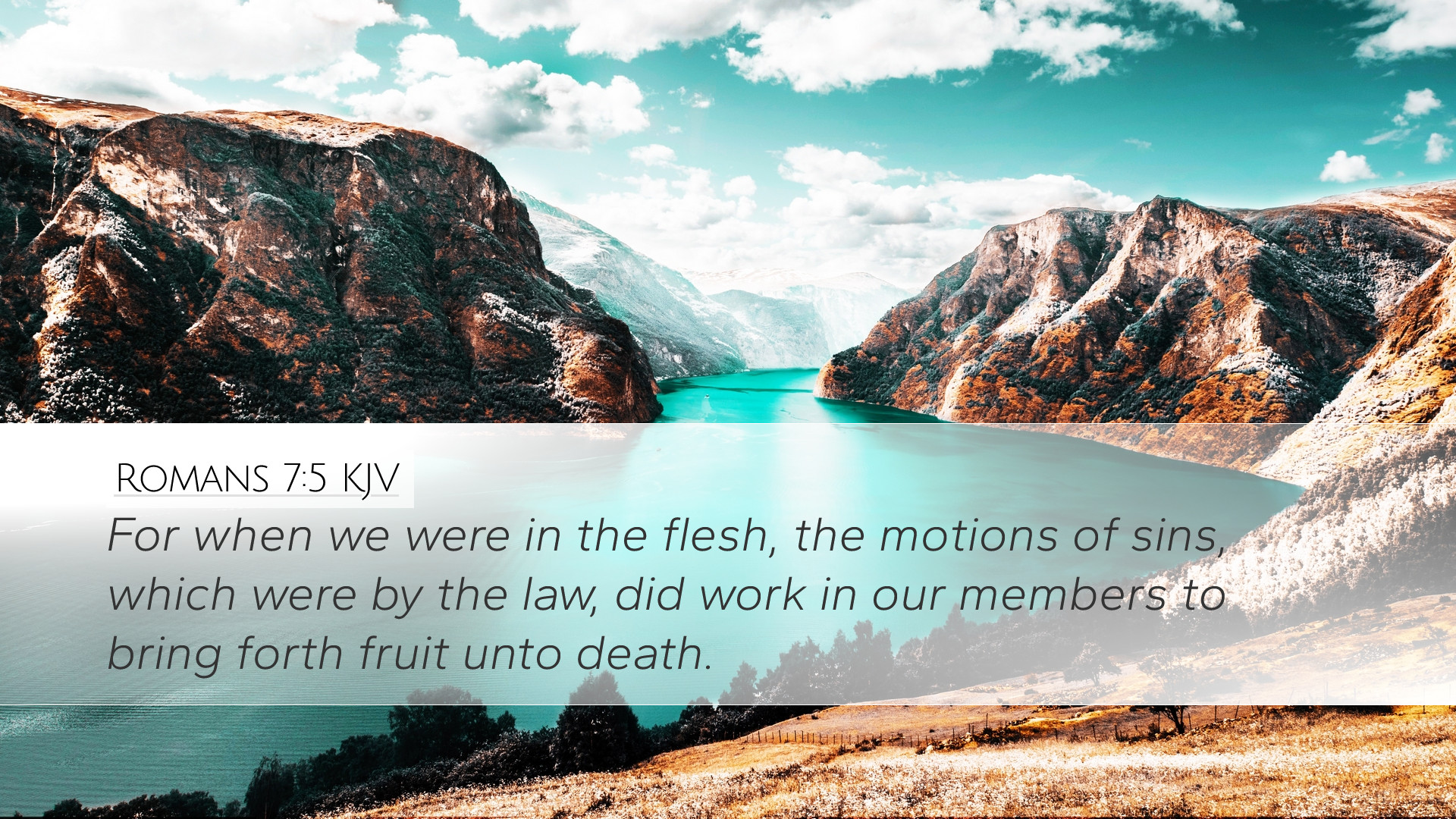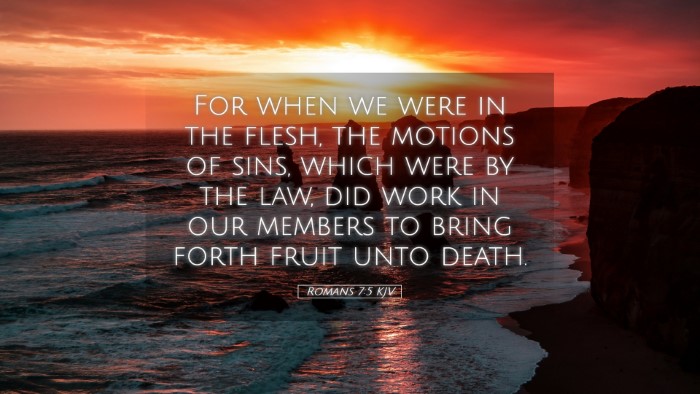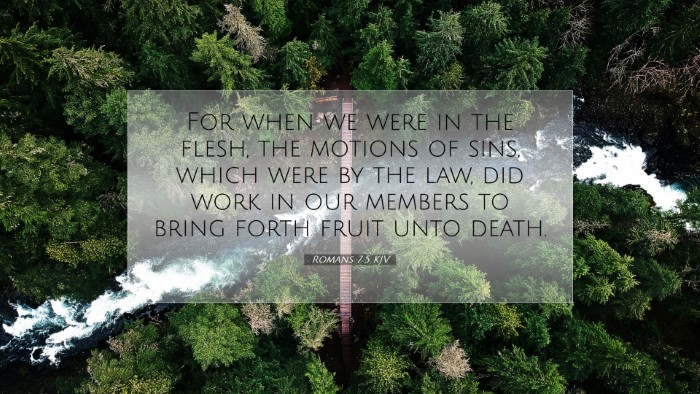Old Testament
Genesis Exodus Leviticus Numbers Deuteronomy Joshua Judges Ruth 1 Samuel 2 Samuel 1 Kings 2 Kings 1 Chronicles 2 Chronicles Ezra Nehemiah Esther Job Psalms Proverbs Ecclesiastes Song of Solomon Isaiah Jeremiah Lamentations Ezekiel Daniel Hosea Joel Amos Obadiah Jonah Micah Nahum Habakkuk Zephaniah Haggai Zechariah MalachiRomans 7:5
Romans 7:5 KJV
For when we were in the flesh, the motions of sins, which were by the law, did work in our members to bring forth fruit unto death.
Romans 7:5 Bible Commentary
Commentary on Romans 7:5
Romans 7:5 reads: "For when we were in the flesh, the motions of sins, which were by the law, did work in our members to bring forth fruit unto death." This verse serves as a profound reflection on the nature of the law, sin, and the believer’s experience prior to salvation. The following sections synthesize insights from notable public domain commentaries.
Contextual Background
This verse is situated within a larger context where Paul addresses the relationship between the Law of Moses and sin. Prior to Romans 7, Paul establishes the universality of sin (Romans 3:23) and its consequences. In this chapter, he delves deeper into how the Law interacts with human sinful nature.
Exegesis of Romans 7:5
Paul’s use of the phrase "when we were in the flesh" indicates a state of being that encompasses human existence under sin’s dominion. Albert Barnes elucidates this concept, emphasizing that “the flesh” refers to the sinful nature, and that it is in this condition that the law arouses sinful passions. The law, while holy, serves to highlight sin rather than justify.
Sin's Motions
The verse mentions the “motions of sins”, which Adam Clarke elaborates as the various sinful desires and impulses that arise when the law is present. The law does not create sin but rather provokes it (Romans 5:20). This dynamic is crucial for understanding the role of the law in revealing sin’s power in human life.
The Law and Its Fruit
Paul's assertion that these motions "bring forth fruit unto death" signals the destructive outcome of life lived under the law apart from Christ. Matthew Henry remarks that despair arises from an awareness of sins amplified by the law's demands. The fruit of sin is death, not merely physical death, but spiritual alienation from God as well.
Theological Implications
The implications of this text affect several areas of theology, particularly soteriology (the study of salvation) and anthropology (the study of humanity).
Soteriology
The understanding that law provokes sin leads to a critical perspective on the means of salvation. Paul indicates that reliance upon the law for justification is futile (Romans 3:20), and the believer's only hope is found in Christ. As Barnes notes, the transition from “the flesh” to living by the Spirit is essential for overcoming sin’s dominion.
Anthropology
Human nature, as described in this verse, emphasizes the conflict inherent within. Clarke underscores that every person possesses a dual nature: one that is drawn to sin and another that yearns for righteousness. This internal struggle is a recurring theme in the Christian experience and underlines the need for divine intervention.
Practical Applications
For pastors, theologians, and scholars, Romans 7:5 provides critical insight into pastoral care and teaching. Several applications emerge:
- Understanding Sin: Engage congregations in discussions about the nature of sin and how the law plays a role in revealing it.
- Law vs. Grace: Teach the difference between living under the law and living in grace, aiding believers in grasping their identity in Christ.
- Spiritual Awareness: Encourage self-examination and reliance on the Holy Spirit to combat sinful desires that persist even after coming to faith.
Conclusion
In summary, Romans 7:5 offers a rich theological canvas painted with the realities of human sinfulness, the law’s role in exposing it, and the believer's need for grace through Christ. As discussed, insights from commentaries enhance our understanding, shaping both our intellectual grasp and our spiritual walk.
Engaging deeply with this verse reminds believers of their past condition and the life-giving transformation that Christ offers. Moving forward, may we rely on the Holy Spirit to bring forth the fruits of righteousness rather than the fruits of sin.


